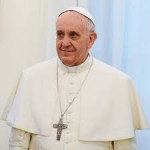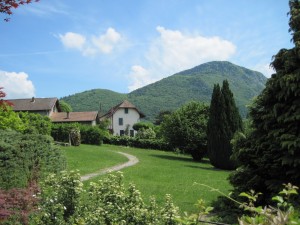 A recent article entitled “The Pope and the Philosopher “ http://chiesa.espresso.repubblica.it/articolo/1350753?eng=y asserts that Pope Francis draws much of his perspective from a philosopher named Alberto Methol Ferre who contended that our world lives today in a disposition of “libertine atheism”. Alberto Ferre’s judgement about it is: “The truth of libertine atheism is the perception that existence has an intrinsic destination of enjoyment, that life itself is made for satisfaction. In other words: the deep kernel of libertine atheism is a buried need for beauty.”
A recent article entitled “The Pope and the Philosopher “ http://chiesa.espresso.repubblica.it/articolo/1350753?eng=y asserts that Pope Francis draws much of his perspective from a philosopher named Alberto Methol Ferre who contended that our world lives today in a disposition of “libertine atheism”. Alberto Ferre’s judgement about it is: “The truth of libertine atheism is the perception that existence has an intrinsic destination of enjoyment, that life itself is made for satisfaction. In other words: the deep kernel of libertine atheism is a buried need for beauty.”
But the libertine atheism perverts beauty because it separates it from truth and goodness.
Others have written “Beauty will save the world” among them, a character of Dostoevsky’s book “The Idiot”, and Cardinal Carlo Maria Martini in his book, Saving Beauty, which comments on Dostoevsky, Alexander Solzhenitsyn in a lecture, http://www.mro.org/mr/archive/24-2/articles/beauty.html and R. Jared Staudt in an excellent article in Crisis Magazine. http://www.crisismagazine.com/2013/beauty-will-save-the-world-from-the-mouth-of-an-idiot-to-the-pen-of-a-pope
 The Visitation Order’s Founder, St Francis de Sales began his book, Treatise on the Love of God, Book 1 Chapter 1, with his understanding of beauty, highlighting the union, order, agreement and proportion of beauty and continuing to connect this with truth and goodness.
The Visitation Order’s Founder, St Francis de Sales began his book, Treatise on the Love of God, Book 1 Chapter 1, with his understanding of beauty, highlighting the union, order, agreement and proportion of beauty and continuing to connect this with truth and goodness.
He said, “Union in distinction makes order; order produces agreement; and proportion and agreement, in complete and finished things, make beauty. An army has beauty when it is composed of parts so ranged in order that their distinction is reduced to that proportion which they ought to have together for the making of one single army. For music to be beautiful, the voices must not only be true, clear, and distinct from one another, but also united together in such a way that there may arise a just consonance and harmony which is not unfitly termed a discordant harmony or rather harmonious discord.
Now as the angelic S. Thomas, following the great S. Denis, says excellently well, beauty and goodness though in some things they agree, yet still are not one and the same thing: for good is that which pleases the appetite and will, beauty that which pleases the understanding or knowledge; or, in other words, good is that which gives pleasure when we enjoy it, beauty that which gives pleasure when we know it. For which cause in proper speech we only attribute corporal beauty to the objects of those two senses which are the most intellectual and most in the service of the understanding”namely, sight and hearing, so that we do not say, these are beautiful odors or beautiful tastes: but we rightly say, these are beautiful voices and beautiful colors.
The beautiful then being called beautiful, because the knowledge thereof gives pleasure, it is requisite that besides the union and the distinction, the integrity, the order, and the agreement of its parts, there should be also splendour and brightness that it may be knowable and visible.
Voices to be beautiful must be clear and true; discourses intelligible; colors brilliant and shining. Obscurity, shade and darkness are ugly and disfigure all things, because in them nothing is knowable, neither order, distinction, union nor agreement; which caused S. Denis to say, that “God as the sovereign beauty is author of the beautiful harmony, beautiful lustre and good grace which is found in all things, making the distribution and decomposition of his one ray of beauty spread out, as light, to make all things beautiful,” willing that to compose beauty there should be agreement, clearness and good grace.
But as to animated and living things their beauty is not complete without good grace, which, besides the agreement of perfect parts which makes beauty, adds the harmony of movements, gestures and actions, which is as it were the life and soul of the beauty of living things.
God, therefore, having a will to make all things good and beautiful, reduced the multitude and distinction of the same to a perfect unity, and, as man would say, brought them all under a monarchy, making a subordination of one thing to another and of all things to himself the sovereign Monarch.”
Read the entire chapter here: http://www.ecatholic2000.com/desales/log5.shtml
